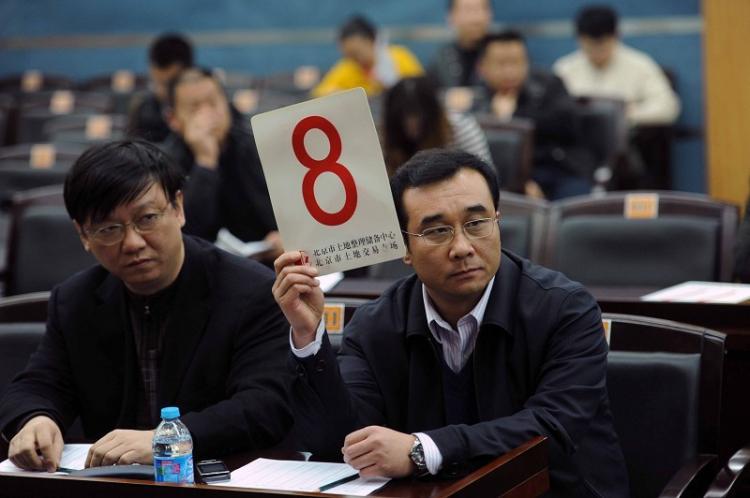
As if to embarrass Chinese Premier Wen Jiabao who just promised to bring housing prices down in a March 5 National People’s Congress session, Beijing’s residential land-price record was broken twice within six hours on March 15, each by state-owned enterprises (SOEs).
Three days later the State-Owned Assets Supervision and Administration Commission, a State Council agency, announced that 78 SOEs will be banned from making further investments in real estate. According to the commission, 94 out of 127 SOEs have been investing in residential real estate development while only 16 SOEs’ primary business is related to real estate. The other 78 SOEs, the commission said, will be required to cease investing in real estate upon the completion of their current real estate projects. No agenda was provided.
The ban seems to reflect the central government’s decision to curb the soaring price of housing, as the SOEs have played a major role in pumping up land prices in the past few years. However, experts have criticized such measures as superficial and ineffective.
Ren Zhiqiang, president of Huayuan Corp., one of China’s largest real estate developers, said in a recent interview with Economic Information Daily that the 78 banned SOEs have no significant influence in the real estate sector. “The other 16 are the real dominating force,” Ren said. “Ruling out a few SOEs will not solve the major problem and will not stop SOEs from paying sky-high prices for land.”
Ren’s remarks were echoed by Pan Shiyi, founder and chairman of Soho China, Beijing’s largest real estate developer. Pan said it is very difficult to ban businesses from purchasing land through administrative measures. Some non-real estate focused SOEs have formed joint ventures, and that makes it more difficult to control their investment behaviors, Pan said.
In recent years SOEs have been aggressively dominating China’s real estate sector. Since 2009, most records in residential housing prices have been set by SOEs. Private developers are more and more frequently shut out of the auctions by the high-price offerings of SOEs. The majority of the non-real estate sector SOEs, such as weapon and tobacco manufacturers, have also joined the game.
Analysts have attributed the SOEs’ active involvement in real estate development to three main factors: easy access to financial resources, pressure for high revenues in their own companies, and unparalleled profit levels in the real estate sector.
China’s financial policy has given SOEs many privileges. Compared to other companies, SOEs can easily obtain more loans and cheaper loans. In the past few years a large portion of loans have flown to the real estate market.
Chinese economist Jiang Yong explained this phenomenon. “Now China’s domestic demand is weak, and the micro-level business environment is harsh. Under such circumstances, it is less risky and more profitable to invest in a fictitious economy—like the stock market or real estate—than in the real economy.”
On the other hand, with the exception of a few monopolies, the SOEs have been struggling to break even. In 2009, the top 40 out of 128 SOEs contributed to 95 percent of the total SOE revenue, while the top 10 contributed more than 75 percent of the revenue. The top SOEs consist mainly of monopolies. Therefore, most SOEs need the steep profits from the real estate market to make their financial numbers look pretty. For example, the China State Construction Engineering Corp. obtains over 40 percent of its revenue from real estate development, though real estate is not its official primary business, according to an analysis by economist Ma Guangyuan.
Moreover, SOEs have little concern over investment risks because any loss will be covered by the nation’s tax money.
If the Chinese government does not directly address the root causes of the SOEs’ over-investment in real estate and only uses symbolic actions to gesture their willingness to reform, the problem of soaring housing prices will only get worse and lead to more serious problems.
Experts have warned that such an abnormal economic phenomenon will render the country’s economy vulnerable. As real estate market expert Prof. Wang Azhong pointed out, four potential crises are associated with the high price of real estate: the chain effect in the real estate market that will further boost land prices; a new wave of housing price increases; an over-concentration of capital in the real estate sector; and the social instability caused by unaffordable housing prices.




